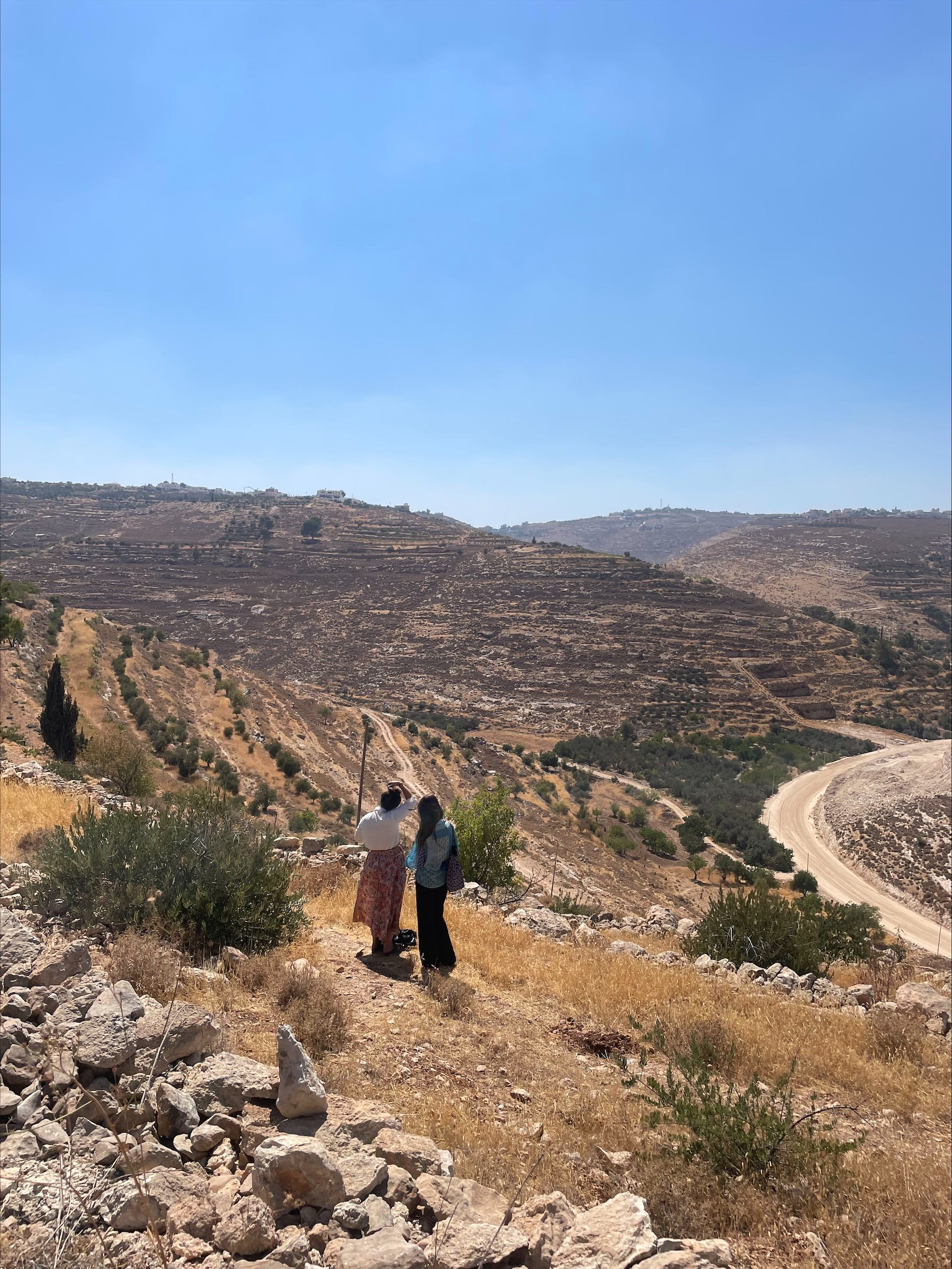ALEXANDRA
My internship in Hebron with a grassroots organization was a deeply immersive experience that offered a firsthand understanding of life under occupation. The grassroots initiatives we undertook were essential for several reasons. First, they provided direct support to Palestinian communities often marginalised under the ongoing occupation. Working on the ground allowed us to respond to the specific needs of these communities, such as assisting families whose homes had been demolished as a result of the ongoing Israeli apartheid or helping to establish critical infrastructure like schools and water systems.
One of the most impactful aspects of this work was our engagement with communities in the South Hebron Hills, an area frequently subjected to settler violence. These attacks often carried out with impunity, leave Palestinian families in a state of constant fear and uncertainty. Our presence in these areas was not just about providing resources; it was an act of solidarity, affirming that these communities are not alone in their struggle.
In regions like the South Hebron Hills, where state protection is absent and violence is a daily reality, grassroots interventions become even more vital. These efforts help sustain the community's resilience and provide critical support that official channels often fail to deliver. By offering material support, such as funding for rebuilding homes or constructing schools, we contributed directly to improving the living conditions of people who face relentless oppression.
Moreover, our work in these areas underscored the power of grassroots mobilisation in drawing international attention to the injustices faced by Palestinian communities. It reinforced the idea that sustainable change often begins at the local level, where external support can empower communities to continue their resistance.
This experience also emphasised the importance of listening to and learning from the people most affected by the occupation. Their resilience, strength, and ability to maintain hope in the face of adversity were profound lessons. I learned that grassroots work is not just about providing aid; it’s about standing with people in their struggle, amplifying their voices, and supporting their right to a dignified life.
Ultimately, the grassroots work we engaged in was a form of active resistance against the systemic oppression these communities face. It demonstrated that even in the most challenging environments, meaningful change is possible through both solidarity and direct action.


